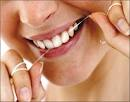Good dental health does more than keep your teeth healthy — it can protect your body from larger health issues.

Healthy Teeth: The Link Between Dental Health and Overall Health
"There are several possible overall health problems that may be affected by your oral health," says Sally J. Cram, DDS, a practicing periodontist in Washington, DC, and a consumer adviser for the American Dental Association.
According to Dr. Cram, several studies have suggested a correlation between periodontal disease, which is an infection of the gums and bone surrounding the teeth, and an increased risk of having or developing the following health issues:
In fact, periodontal disease is a major risk factor for preterm and low-birth-weight babies — pregnant women with periodontal disease are at a seven fold greater risk for these complications.
Healthy Teeth: Maintaining Dental Health
If you neglect your teeth, infection and inflammation can result. These problems may start around your teeth but can quickly spread beyond your mouth.
Periodontal disease results from a buildup of bacteria beneath your gums, the tissue that wraps around your teeth. If you neglect to brush and floss your teeth carefully and regularly, the bacteria causes inflammation within 24 to 48 hours. Then, over time, the gums begin to pull away from the teeth, creating a "pocket" between them.
"This starts a vicious cycle — the deeper the pocket gets, the less effective you are at removing the bacteria, which causes more inflammation and infection, resulting in the pocket getting deeper and more difficult to clean," Cram says.
If the bacteria aren't cleaned away promptly, within months or even weeks, they release toxins that destroy the jawbone, eventually leading to teeth that become loose and need to be removed by your dentist.
Eventually, those bacteria can reach other areas of the body, like the heart, and may lead to the formation of blood clots. Inflammation of the gums from periodontal disease can also encourage the buildup of thick plaque that can clog arteries and lead to heart disease.
Healthy Teeth: Red Flags of Periodontal Disease
Watch for these warning signs of periodontal disease:
- Swollen gums
- Redness of the gums
- Gums that bleed
- Receding gums
- Bad taste in the mouth
- Bad breath
Healthy Teeth: Where to Start
Regular brushing and flossing may not be all you need to protect yourself against heart disease and stroke, but they’re certainly a great start. And if you're pregnant, practicing good dental hygiene protects you and your baby.
"Most dental problems are totally preventable with good daily hygiene," says Cram, which means brushing twice daily with toothpaste that carries the ADA seal of acceptance for safety and effectiveness, and flossing once per day.
Regular dental cleanings and checkups every six months — or more often if your dentist says so — will help spot signs of disease early. And early treatment will in turn help you lower your risk for serious, related health problems like heart disease or stroke.
 |
| Brian S. Nylaan, D.D.S. |
Reference: Everyday health By Diana Rodriguez










 Since my first day of
Since my first day of  Miles Hall, DDS, is Cigna Dental’s chief clinical director. In this role, he helps develop strategic clinical policy and is involved with medical/dental integration efforts, including the creation of studies demonstrating the value of integration in improving overall health outcomes. He has been with Cigna since 1996, and has worked in the dental industry for more than 30 years, including private practice. He is currently a member of the American Dental Association, American Association of Dental Consultants, and a member of the National Association of Dental Plans’ PRC Clinical Workgroup. The Cigna Dental Oral Health Integration Program® is offered to all of Cigna's dental customers. This program provides enhanced dental coverage — such as 100% reimbursement of copayments and coinsurance on certain dental procedures — for customers with specific medical conditions.
Miles Hall, DDS, is Cigna Dental’s chief clinical director. In this role, he helps develop strategic clinical policy and is involved with medical/dental integration efforts, including the creation of studies demonstrating the value of integration in improving overall health outcomes. He has been with Cigna since 1996, and has worked in the dental industry for more than 30 years, including private practice. He is currently a member of the American Dental Association, American Association of Dental Consultants, and a member of the National Association of Dental Plans’ PRC Clinical Workgroup. The Cigna Dental Oral Health Integration Program® is offered to all of Cigna's dental customers. This program provides enhanced dental coverage — such as 100% reimbursement of copayments and coinsurance on certain dental procedures — for customers with specific medical conditions.



